Soil, the primary material for plant survival, contains organic matter, minerals, microorganisms, air, and water, which can provide nutrients for plant growth. The quality of the soil affects the health of plants, so we need to regulate the status of the ground to ensure proper plant growth. WiFi soil sensors can monitor soil temperature and moisture and record accurate data to assist in implementing irrigation schedules to avoid over-or under-irrigation, which might damage plant health.
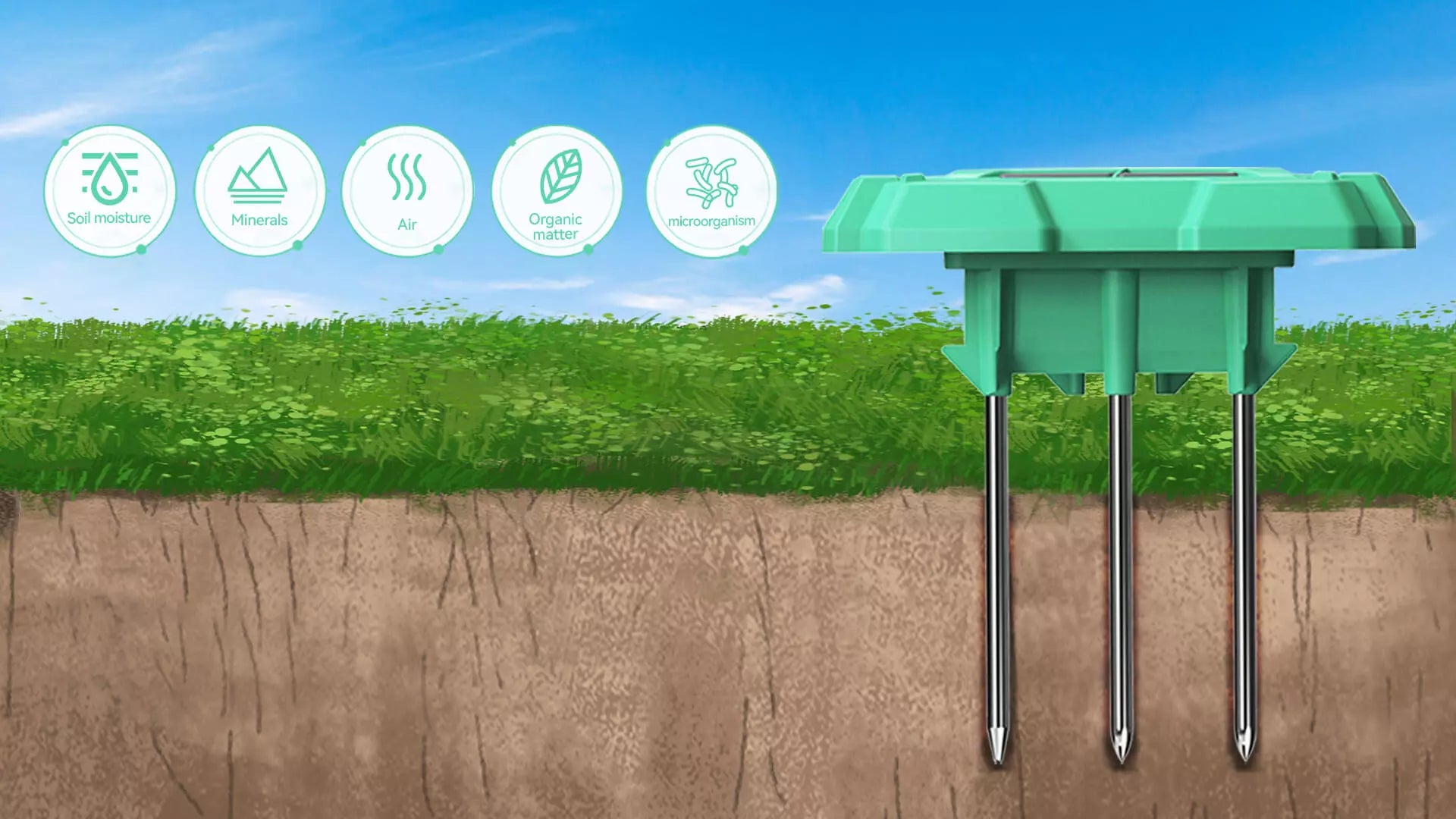
After reading this article, you'll understand why adding WiFi soil sensors in your planting is necessary.
-
Moisture detection
When the soil moisture is low, the plant root system does not absorb enough water, causing water shortage, withering, and even plant death. However, when there is too much water, the air in the soil gets lower, leading to weakened aerobic respiration of the plant root system, which has to turn to anaerobic respiration. The alcohol produced by anaerobic respiration will poison the plant roots, leading to rotten roots or plant death.
WiFi soil sensors can accurately monitor the soil's moisture level, and users can better determine the soil's state based on the collected data. Rainpoint's WiFi soil sensor has five levels of LED lights on the device: 20%, 40%, 60%, 80% and 100%, which can also directly identify the moisture level of the soil. It can also display all the soil moisture data on the APP for your reference. You can decide whether to continue or stop watering based on the feedback to ensure the soil moisture is suitable for plant growth.
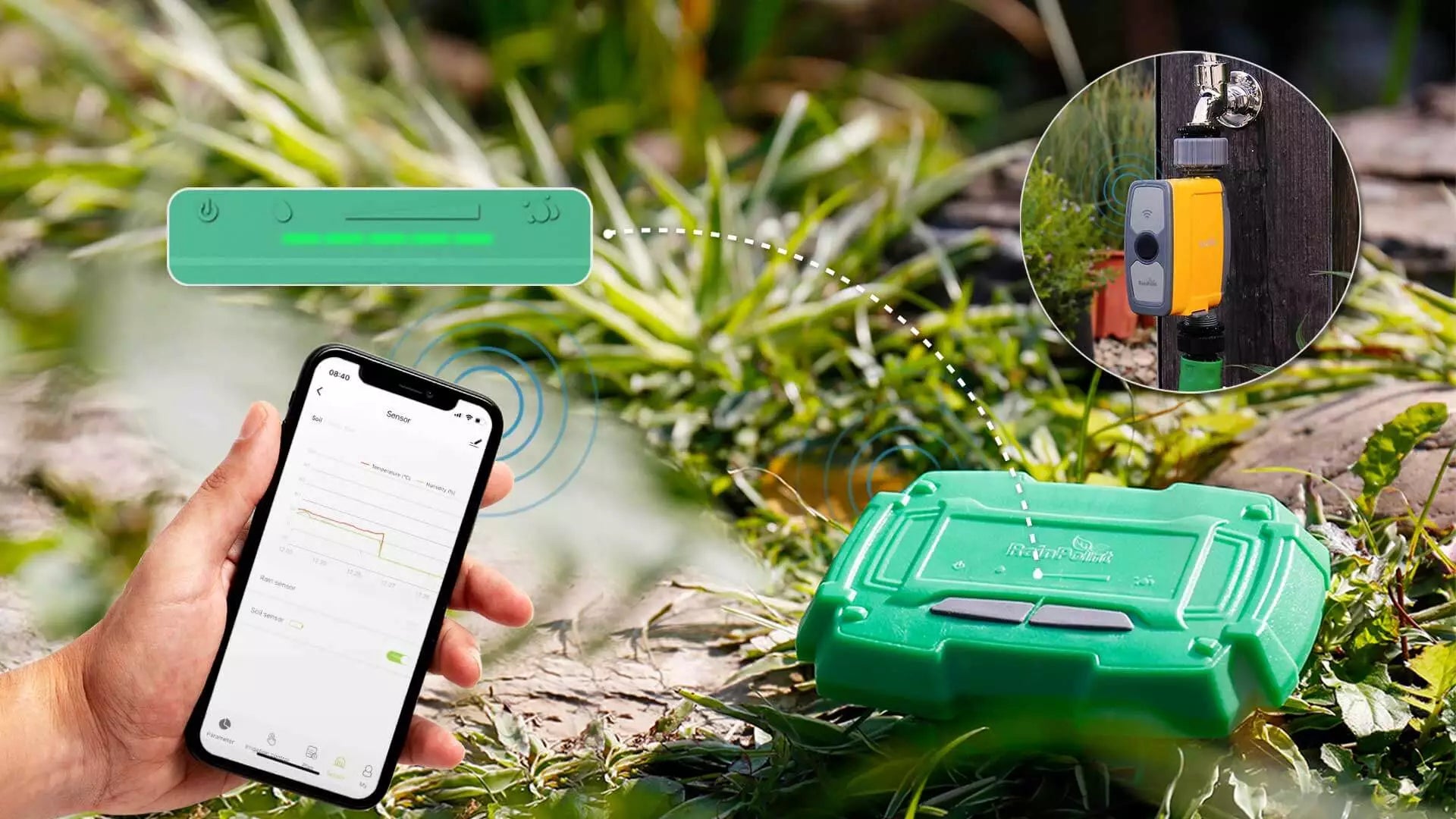
-
Temperature detection
Different plants have different requirements for soil temperature, and plants can grow better in the appropriate soil temperature range. A WiFi soil sensor can always grasp the soil temperature condition. Rainpoint's WiFi soil sensor updates the data to the cloud every 5 minutes. The users can know about the latest soil status and determine whether the soil temperature needs to be adjusted to keep the plants in the best condition in the appropriate temperature range.
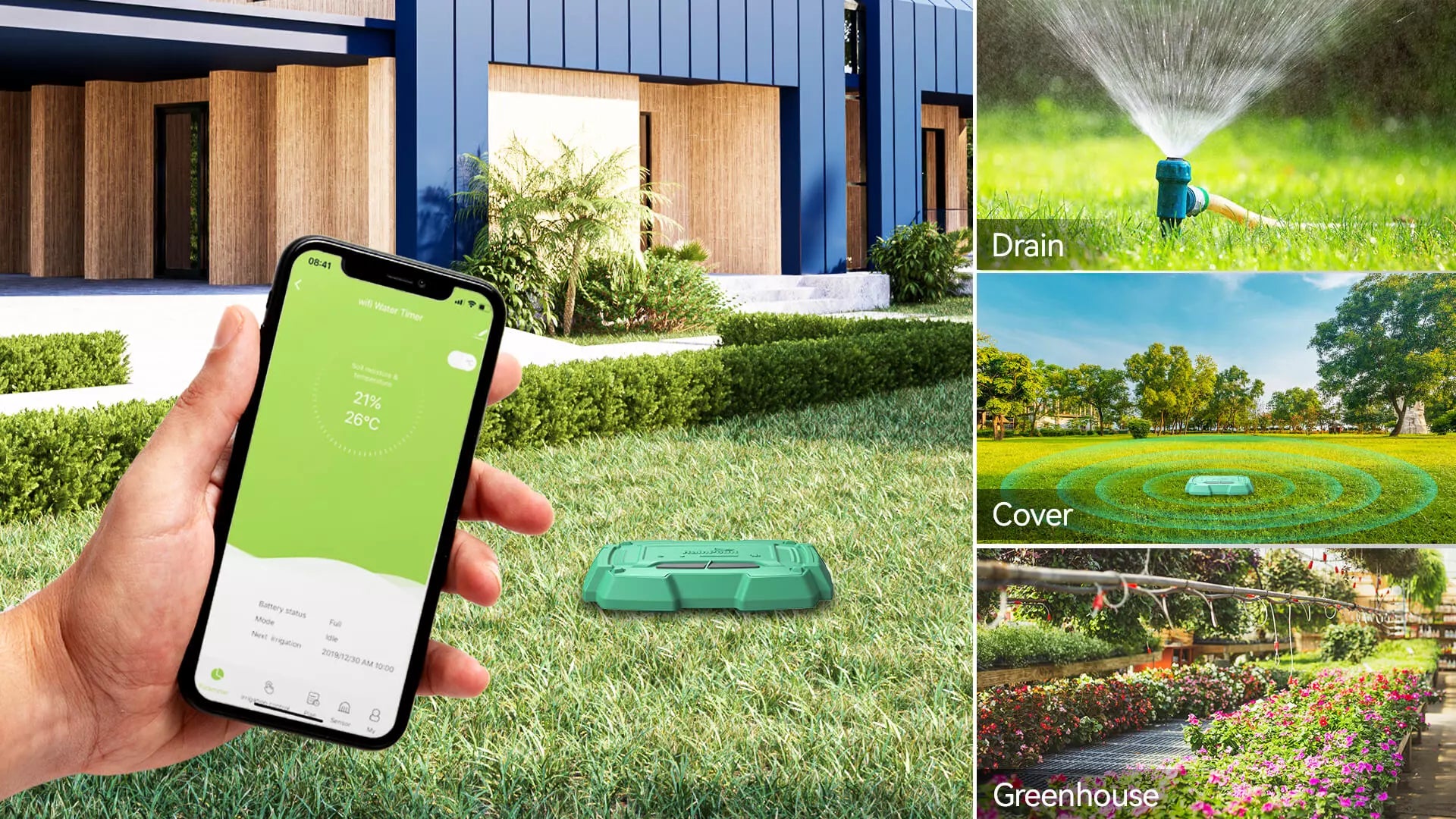
-
APP control
Nowadays, various WiFi-based smart products are widely used in daily life, and the smart control revolution is gradually extended everywhere, such as in garden irrigation. Through the APP, you can view the soil moisture and temperature detailly, as well as the last ten days of temperature and humidity data history graph. You can optimize your irrigation decisions based on soil temperature and humidity details, rationalize water usage, and reduce unnecessary water waste while protecting plant health.
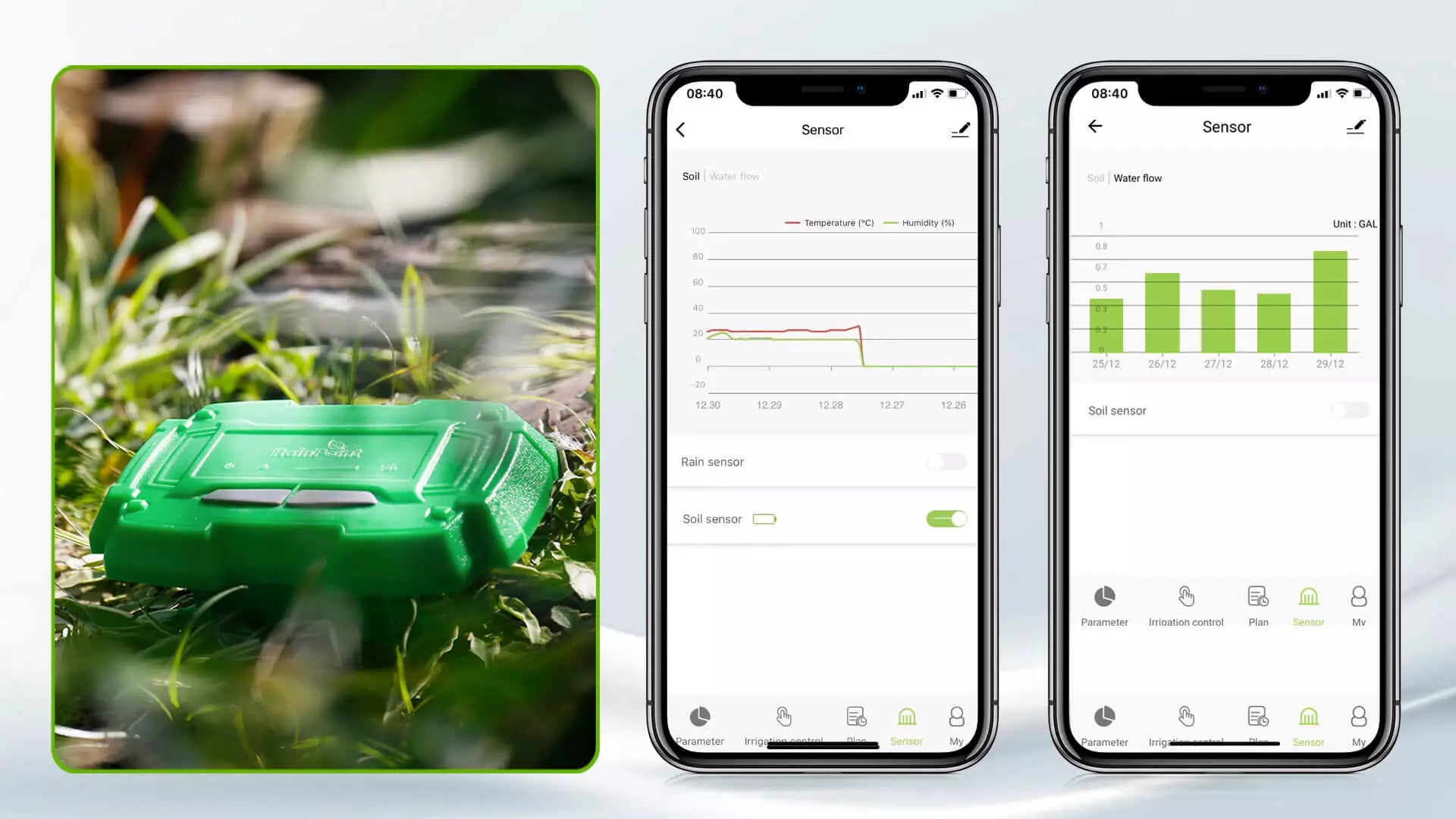
-
Moisture Alarm
Excessive soil moisture will not only damage plants but waste water as well. Rainpoint's WiFi soil sensor can be paired with the irrigation timer valve and set the soil moisture alarm value. When the soil sensor monitors that the soil moisture has reached the alarm value, it will automatically alarm and send a notification. Also, through the interconnection of the cloud platform data, the irrigation timer valve will automatically close the irrigation schedule and precisely control every drop of water.
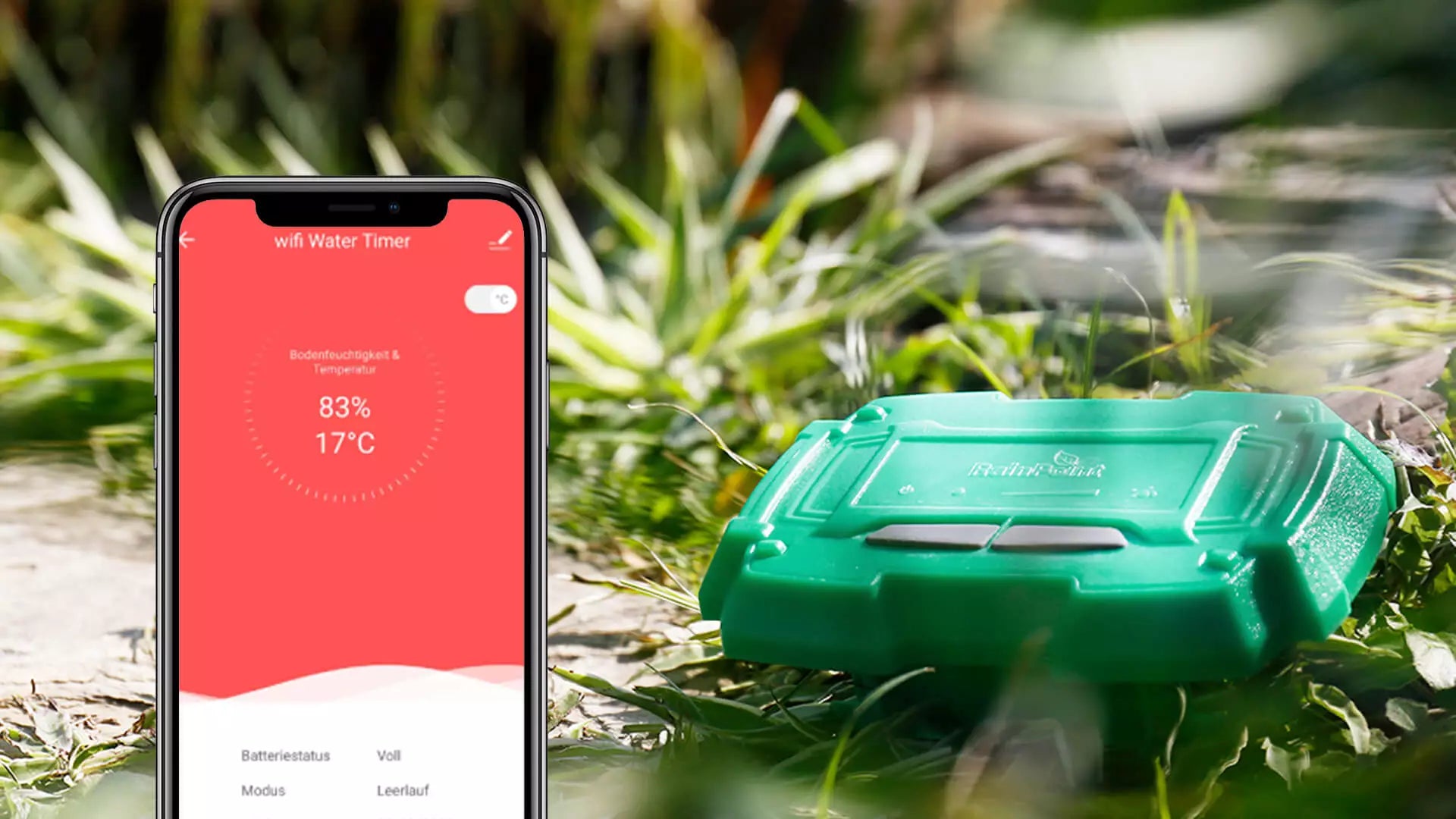
Soil temperature and humidity are important factors that influence plant growth and development. It is also a critical reference indicator in irrigation water conservation. From WiFi soil sensor to the whole smart irrigation system, Rainpoint can help you cultivate and control your plants in more detail so you can manage your garden remotely even you are ten thousand miles away! No longer worry about the depression of the plants due to unsuitable soil water quantity! A WIFI soil sensor is an excellent helper to save water and improve efficiency!



